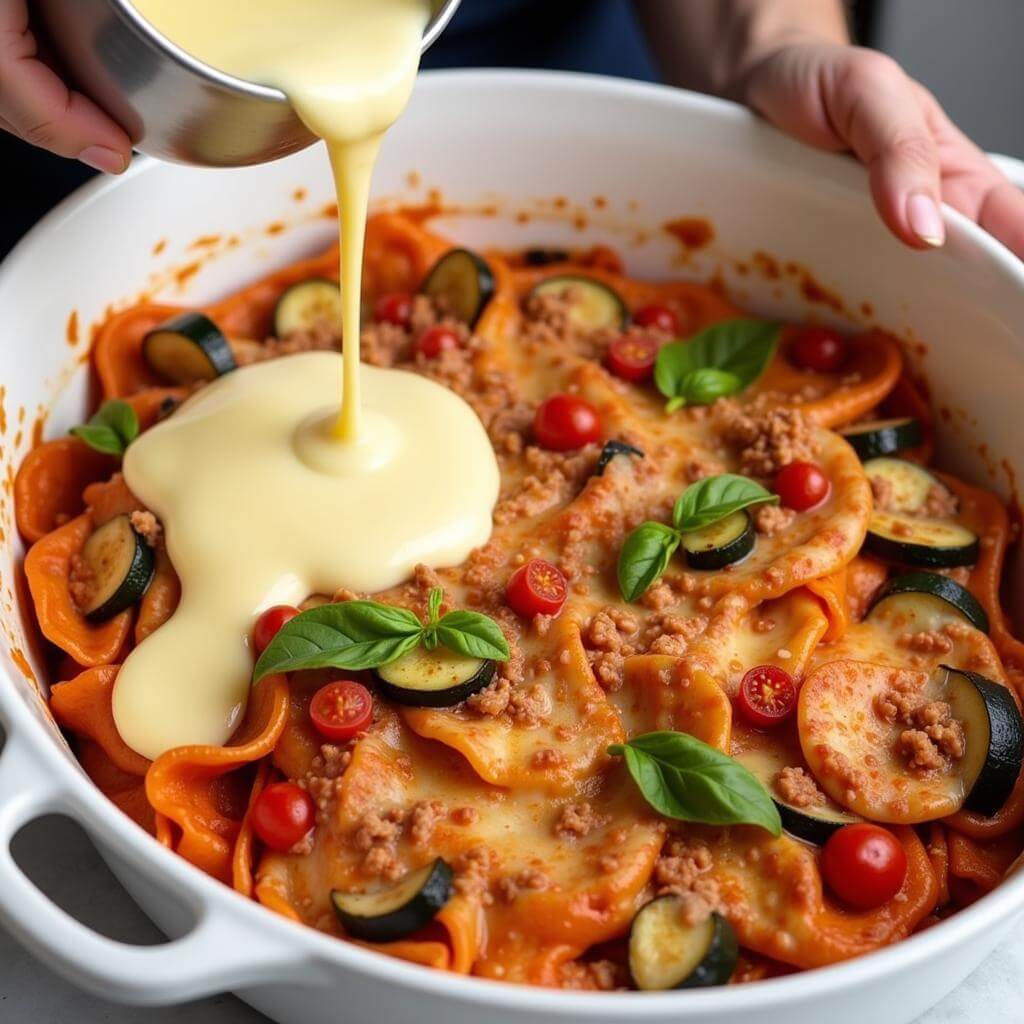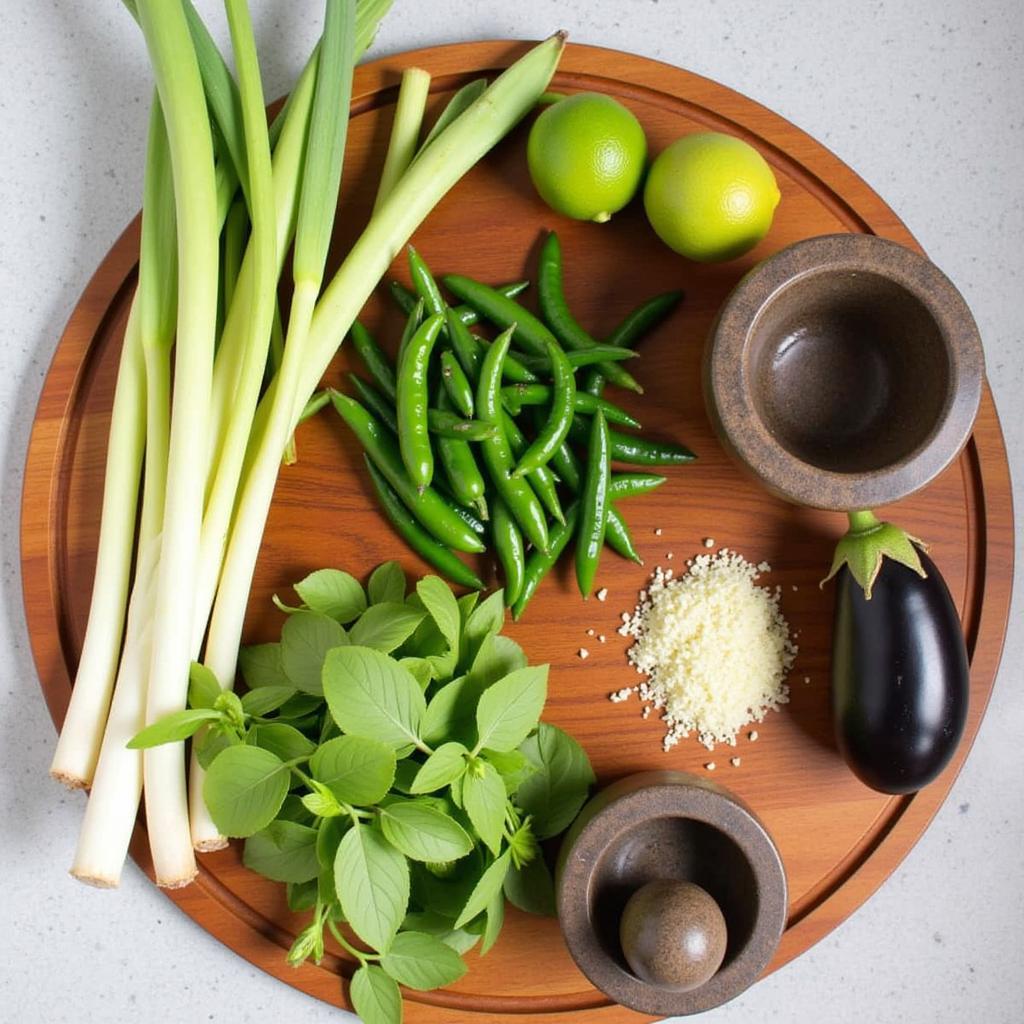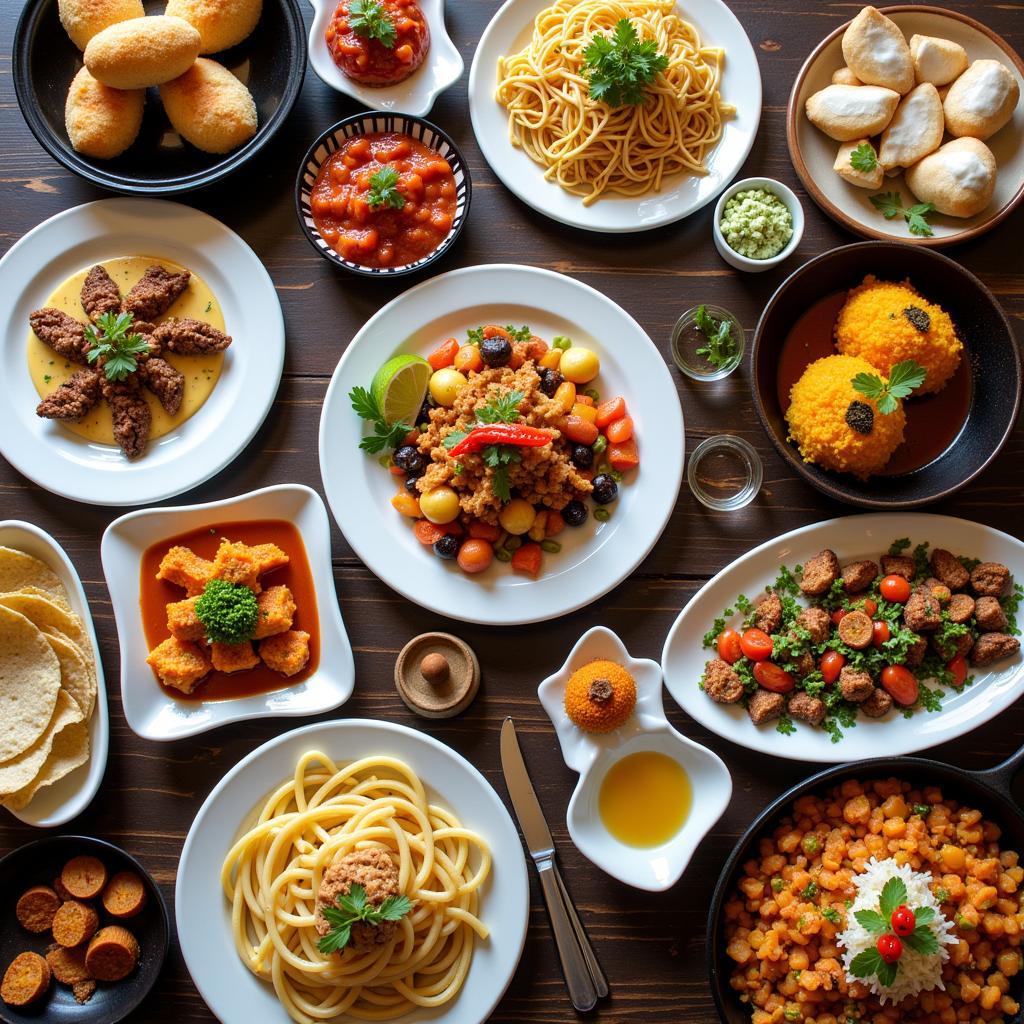Describing a dish you like to prepare is a common topic in IELTS Speaking exams. This theme allows candidates to showcase their vocabulary related to food, cooking processes, and personal preferences. It has appeared frequently in past exams and is likely to remain a popular choice for examiners. Let’s explore how to excel in answering questions about this topic across all parts of the IELTS Speaking test.
Nội dung bài viết
Part 1: Introduction and Interview
In this section, the examiner may ask questions such as:
- Do you enjoy cooking?
- What’s your favorite dish to prepare?
- How often do you cook at home?
Let’s focus on answering the second question:
Examiner: What’s your favorite dish to prepare?
Band 6-7 Answer:
“My favorite dish to prepare is pasta with tomato sauce. I like it because it’s quite simple to make and doesn’t take too long. I usually use spaghetti, canned tomatoes, garlic, and some herbs. It’s a tasty meal that I can cook even when I’m tired after work.”
Band 8-9 Answer:
“I’d have to say my favorite dish to prepare is a homemade vegetable lasagna. It’s a labor of love that involves layering pasta sheets with a rich tomato sauce, sautéed vegetables like zucchini and eggplant, and a creamy béchamel sauce. The process is quite intricate and time-consuming, but the end result is always worth the effort. There’s something deeply satisfying about pulling a bubbling, golden-brown lasagna out of the oven and sharing it with friends and family.”
 Preparing homemade vegetable lasagna
Preparing homemade vegetable lasagna
Part 2: Long Turn
In this section, you’ll be given a cue card with a topic and some prompts. Here’s an example:
Describe a dish you like to prepare.
You should say:
- What the dish is
- How you learned to make it
- What ingredients are needed
- And explain why you enjoy preparing this dish
Band 6-7 Answer:
“The dish I like to prepare is a simple stir-fry chicken with vegetables. I learned to make it by watching cooking videos online and experimenting in the kitchen. The main ingredients are chicken breast, bell peppers, onions, garlic, and soy sauce. I enjoy preparing this dish because it’s quick and healthy. The process of chopping the vegetables and cooking everything in a wok is quite relaxing for me. It’s also a versatile dish that I can modify based on the vegetables I have available. The aroma of the garlic and soy sauce sizzling in the pan is always appetizing. I find it satisfying to create a tasty meal from scratch in just about 20 minutes.”
Band 8-9 Answer:
“The dish I’m particularly fond of preparing is a traditional Thai green curry. I honed my skills in making this dish during a culinary adventure in Bangkok, where I took a cooking class from a seasoned local chef. The process begins with creating the curry paste from scratch, which is a labor-intensive yet rewarding task. Essential ingredients include lemongrass, kaffir lime leaves, green chilies, shallots, and garlic, which are meticulously ground together to form the base of the curry.
The main components of the dish are typically chicken or tofu, eggplant, and Thai basil, simmered in a luscious coconut milk broth. What I find most captivating about preparing this dish is the symphony of aromas that fill the kitchen as each ingredient is added to the pan. The vibrant green color of the curry is not only visually appealing but also a testament to the freshness of the ingredients used.
I derive immense satisfaction from the entire process, from selecting the perfect produce at the market to the final garnish of fresh cilantro. The intricate balance of flavors – spicy, sweet, salty, and sour – challenges my palate and culinary skills every time. Moreover, sharing this authentic Thai experience with friends and family allows me to transport them to the bustling streets of Bangkok, if only for a meal. It’s this ability to create not just food, but an entire sensory experience, that makes preparing Thai green curry so enjoyable for me.”
 Ingredients for Thai green curry
Ingredients for Thai green curry
Follow-up questions:
- Has your taste in food changed over time?
- Do you think cooking skills are important for everyone to learn?
Band 6-7 Answer (Question 1):
“Yes, I think my taste in food has definitely changed over time. When I was younger, I used to prefer simpler, less spicy foods. But now, I enjoy trying new and more complex flavors. I’ve become more adventurous in my food choices and I’m always eager to taste dishes from different cultures.”
Band 8-9 Answer (Question 1):
“Absolutely, my palate has evolved considerably over the years. As a child, I was rather unadventurous, preferring bland, familiar foods. However, as I’ve matured and been exposed to diverse cuisines, I’ve developed a penchant for more nuanced and robust flavors. I now relish the opportunity to expand my culinary horizons and find myself gravitating towards dishes with intricate spice profiles and unexpected ingredient combinations. This evolution in taste has not only broadened my appreciation for global cuisines but has also inspired me to be more experimental in my own cooking endeavors.”
 Diverse global cuisines on a table
Diverse global cuisines on a table
Part 3: Two-way Discussion
In this section, the examiner will ask more abstract questions related to the topic. For example:
Examiner: How do you think cooking skills contribute to a person’s independence?
Band 6-7 Answer:
“I believe cooking skills are quite important for independence. When you can cook, you don’t have to rely on others or always eat out. It’s healthier because you know what ingredients you’re using. Also, it can save money compared to buying ready-made meals or eating at restaurants all the time. Cooking allows you to take care of yourself and even others, which is a big part of being independent.”
Band 8-9 Answer:
“Cooking skills play a pivotal role in fostering personal independence. The ability to prepare one’s own meals empowers individuals to take control of their nutrition and dietary choices, which is fundamental to overall well-being. Moreover, culinary proficiency cultivates a sense of self-reliance that extends beyond the kitchen. It instills confidence in one’s ability to problem-solve and be resourceful, traits that are invaluable in various aspects of life.
From a financial perspective, cooking at home is typically more economical than relying on prepared foods or dining out regularly, thus contributing to financial independence. Additionally, the skill of cooking equips individuals with the means to nurture social connections by hosting gatherings or sharing meals with others, which is an important aspect of emotional independence.
In essence, cooking skills serve as a catalyst for personal growth, enabling individuals to navigate the challenges of adult life with greater ease and autonomy. They foster a sense of accomplishment and self-sufficiency that is instrumental in building a strong foundation for independence across various domains of life.”
Key Vocabulary and Phrases for High Scores
-
Culinary adventure (noun) – /ˈkʌlɪnəri ədˈventʃər/ – An exciting experience involving food and cooking.
Example: “My trip to Italy was a true culinary adventure, filled with delicious pasta and gelato.” -
To hone one’s skills (phrase) – /həʊn wʌnz skɪlz/ – To improve or perfect a skill through practice.
Example: “I spent months honing my baking skills before entering the competition.” -
Labor of love (idiom) – /ˈleɪbər əv lʌv/ – A task done for pleasure, not for reward.
Example: “Creating this complex dessert is a labor of love that takes hours to perfect.” -
Symphony of aromas (metaphor) – /ˈsɪmfəni əv əˈrəʊməz/ – A pleasing combination of different scents.
Example: “Opening the spice cabinet released a symphony of aromas into the kitchen.” -
To derive satisfaction (phrase) – /dɪˈraɪv sætɪsˈfækʃən/ – To get pleasure or contentment from something.
Example: “I derive great satisfaction from seeing people enjoy the meals I prepare.”
Tips from an IELTS Speaking Examiner
-
Practice describing dishes in detail: Focus on ingredients, preparation methods, and sensory experiences (taste, smell, texture).
-
Expand your culinary vocabulary: Learn specific cooking terms and descriptive adjectives related to food.
-
Prepare personal anecdotes: Have stories ready about your cooking experiences or memorable meals.
-
Work on fluency: Practice speaking about food topics without long pauses or hesitations.
-
Develop your opinions: Be ready to discuss broader topics related to food, such as cultural significance or health impacts.
By following these guidelines and incorporating rich vocabulary, you’ll be well-prepared to excel in discussing your favorite dishes in the IELTS Speaking test. Remember, the key is to describe a time when you tried a new cuisine with enthusiasm and detail, showcasing your language skills and personal experiences.


